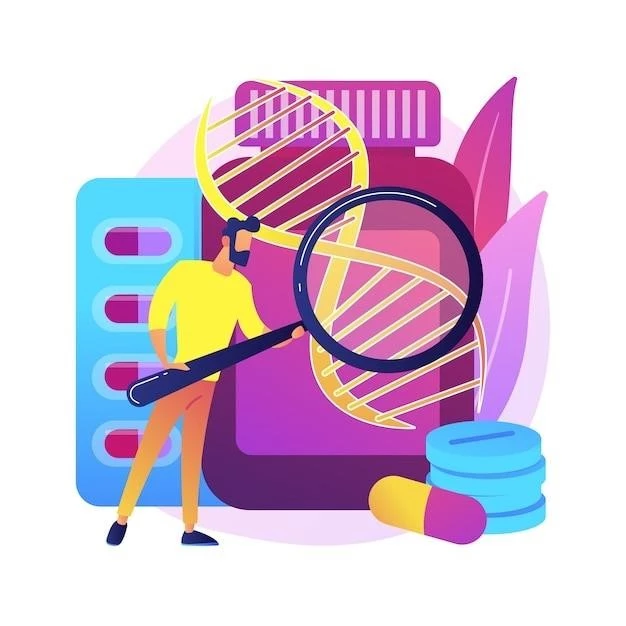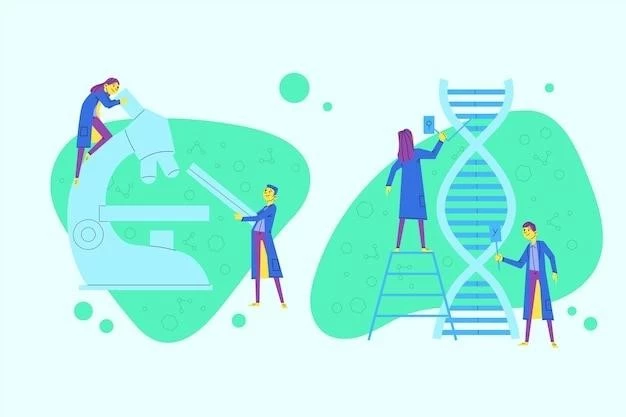Learn about the causes, symptoms, and treatment options for Chromosome 1q Duplication to better understand this genetic condition.
Overview⁚
Chromosome 1q Duplication is a genetic disorder where there is an extra copy of genetic material on the long arm of chromosome 1. This can lead to various physical and neurological symptoms, affecting individuals differently. Understanding the intricacies of this duplication can help in managing the condition effectively. Seek advice from genetic counselors and specialists for personalized guidance.
Symptoms of 1q12 q21 Duplication
Explore the physical and neurological symptoms associated with Chromosome 1q Duplication for better awareness and understanding.
Physical Symptoms⁚
The physical symptoms of Chromosome 1q Duplication can vary and may include facial abnormalities, heart defects, developmental delays, and musculoskeletal issues. Individuals may also experience growth delays, feeding difficulties, and distinctive features. It’s important to consult healthcare professionals for accurate diagnosis and tailored treatment plans to address these physical manifestations effectively.
Neurological Symptoms⁚
Neurological symptoms associated with Chromosome 1q Duplication can include intellectual disabilities, seizures, speech and language delays, autism spectrum disorders, and behavioral challenges. Individuals may also exhibit motor coordination issues and sensory processing difficulties. Seek support from neurologists and therapists to address these neurological symptoms effectively and improve overall quality of life.
Treatment Options for Chromosome 1q Duplication
Discover medical interventions and surgical procedures to manage Chromosome 1q Duplication effectively. Consult specialists for personalized care plans.
Medical Interventions⁚
Medical interventions for Chromosome 1q Duplication may include therapies to manage symptoms such as physical abnormalities, developmental delays, and intellectual disabilities. Treatment plans could involve medications, physical therapy, occupational therapy, and speech therapy. It is crucial to work closely with a multidisciplinary healthcare team to address the specific medical needs of individuals with this genetic condition.
Surgical Procedures⁚
Surgical procedures may be recommended for individuals with Chromosome 1q Duplication to address specific physical anomalies or complications such as heart defects or skeletal issues. Surgeries aim to improve overall health and quality of life. Collaborate closely with surgeons and healthcare providers to assess the need for and benefits of surgical interventions, ensuring the best possible outcomes for the individual.
Genetic Causes of 1q12 q21 Duplication
Understand how genetic mutations and inheritance patterns contribute to Chromosome 1q Duplication. Seek genetic counseling for insights.
Explanation of Genetic Mutation⁚
The Chromosome 1q Duplication occurs when an extra segment of the long arm of chromosome 1 is present, leading to an abnormal number of genes. This duplication can result from errors during cell division or inherited from a parent. Understanding the genetic basis of this condition can provide valuable insights into its development and potential implications. Consult with genetic specialists to get a comprehensive overview of the genetic mutation and its implications.
Inheritance Patterns⁚
Chromosome 1q Duplication can be inherited from a parent or occur sporadically due to de novo mutations. The inheritance pattern may vary, with some cases having a familial origin while others are sporadic. Genetic testing and counseling play a crucial role in understanding the inheritance patterns of this condition. Families may benefit from discussing the genetic implications with healthcare providers to make informed decisions regarding family planning and genetic risk assessment.
Diagnosis of Chromosome 1q Duplication
Learn about diagnostic tests and methods for early detection of Chromosome 1q Duplication. Seek medical advice promptly.
Diagnostic Tests⁚
Diagnostic tests for Chromosome 1q Duplication may involve genetic testing, chromosome analysis, and imaging studies like MRI or CT scans. These tests help identify the specific genetic alterations and associated physical abnormalities. Early diagnosis is crucial for timely intervention and management of the condition. Consult geneticists and specialists for accurate testing and interpretation of results to guide treatment decisions effectively.
Early Detection⁚
Early detection of Chromosome 1q Duplication through newborn screening, developmental assessments, and genetic evaluations is key to initiating timely interventions. Regular monitoring of developmental milestones and proactive genetic testing can aid in identifying potential concerns early on. Collaborate with healthcare providers to establish a comprehensive care plan and ensure early detection strategies are in place for optimal management of the condition.
Prognosis for 1q12 q21 Duplication
Understand the long-term outlook and quality of life for individuals with Chromosome 1q Duplication. Stay informed and seek support.
Long-Term Outlook⁚
The long-term outlook for individuals with Chromosome 1q Duplication can vary depending on the severity of symptoms and individual health factors. Regular medical assessments, therapy sessions, and consistent follow-ups play a crucial role in managing the condition. With appropriate care, early interventions, and support from healthcare providers and caregivers, individuals can achieve improved quality of life and better long-term outcomes. Stay connected with healthcare professionals for ongoing care and support.
Quality of Life⁚
The quality of life for individuals with Chromosome 1q Duplication can be enhanced through early interventions, personalized care plans, and access to supportive services. Encouraging independence, providing therapeutic interventions, and fostering a supportive environment can significantly improve the well-being of individuals with this condition. Families and caregivers are essential in creating a supportive network to promote the overall quality of life. Explore available resources and engage in therapies to enhance the quality of life for individuals with Chromosome 1q Duplication.

Research on Chromosome 1q Duplication
Stay informed about current studies and future directions in research on Chromosome 1q Duplication for updated knowledge.
Current Studies⁚
Current studies on Chromosome 1q Duplication focus on understanding the underlying mechanisms, developing targeted therapies, and improving diagnostic tools. Researchers are exploring the impact of these genetic changes on various body systems to enhance treatment strategies. Stay updated on ongoing research initiatives to gain insights into potential advancements that could positively impact the management of this genetic condition. Consider participating in research studies for further contributions to the field.
Future Directions⁚
Future research on Chromosome 1q Duplication aims to uncover potential genetic therapies, refine diagnostic techniques, and enhance personalized treatment approaches. Scientists are working towards a deeper molecular understanding of the condition to develop innovative interventions that target specific genetic abnormalities. Stay informed about upcoming studies and advancements in the field to access cutting-edge treatments and holistic care options. Engage with healthcare providers to explore future research directions for improved outcomes in managing Chromosome 1q Duplication.
Support Resources for Individuals with 1q12 q21 Duplication
Discover support groups and therapeutic services to assist individuals with Chromosome 1q Duplication for comprehensive care.
Support Groups⁚
Support groups for Chromosome 1q Duplication offer a network of empathy٫ shared experiences٫ and resources for individuals and families navigating this condition. Connecting with others facing similar challenges can provide emotional support٫ valuable insights٫ and a sense of community. Joining support groups can empower individuals to cope with the complexities of the genetic disorder and access practical guidance for enhancing quality of life. Explore local and online support groups to connect with individuals on a similar journey.
Therapeutic Services⁚
Therapeutic services such as speech therapy, physical therapy, and occupational therapy are essential for individuals with Chromosome 1q Duplication to address developmental delays, enhance communication skills, and improve motor function. These services play a critical role in optimizing independence, promoting overall well-being, and achieving developmental milestones. Collaborate with therapists and specialists to customize therapy plans that meet the unique needs of individuals with this genetic condition. Engage in regular therapeutic sessions to support growth and development effectively.
